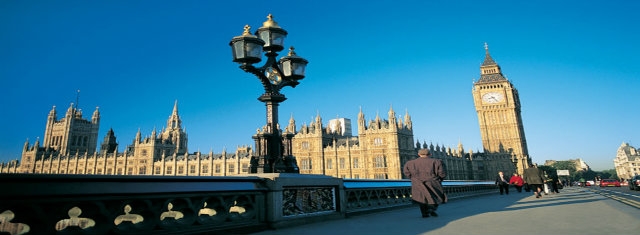Technology
Ruling on Interception
Investigatory Powers Tribunal - UK

(Source: © Crown Copyright)
USPA NEWS -
The Investigatory Powers Tribunal (IPT) has issued its second judgment on challenges to the lawfulness of (i) the UK´s bulk interception powers and (ii) the intelligence-sharing arrangements between the UK and the US National Security Agency (NSA).
The judgment reaffirms the IPT´s main December ruling which found strongly in favour of the Government. The Court ruled that the legal frameworks governing both the bulk interception regime (found in section 8(4) of the Regulation of Investigatory Powers Act or RIPA), and the intelligence-sharing regime, were fully compatible with human rights, in particular the right to privacy.
The judgment focuses primarily on a discrete and purely historical issue ““ whether those legal frameworks were also fully compatible at a point before these legal proceedings began.
The judgment focuses primarily on a discrete and purely historical issue ““ whether those legal frameworks were also fully compatible at a point before these legal proceedings began.
It confirms the UK´s bulk interception regime was fully compliant with the right to privacy at all times, both before and at the time of the legal proceedings.
A GCHQ spokesperson said: "We are pleased that the Court has once again ruled that the UK´s bulk interception regime is fully lawful. It follows the Court´s clear rejection of accusations of “˜mass surveillance´ in their December judgment."
A GCHQ spokesperson said: "We are pleased that the Court has once again ruled that the UK´s bulk interception regime is fully lawful. It follows the Court´s clear rejection of accusations of “˜mass surveillance´ in their December judgment."
The IPT has, however, found against the Government in one small respect in relation to the historic intelligence-sharing legal regime. The Court has ruled that the public disclosure of two paragraphs of additional detail, voluntarily disclosed by the Government during the litigation, were essential to make the public regime sufficiently foreseeable and therefore fully compatible with the European Convention of Human Rights. They found that to the extent that these two paragraphs were not previously in the public domain, the intelligence-sharing regime prior to that point was in contravention of human rights law.
But the judgment does not in any way suggest that important safeguards protecting privacy were not in place at all relevant times. It does not require GCHQ to change what it does to protect national security in any way.
The GCHQ spokesperson added: "Today´s IPT ruling re-affirms that the processes and safeguards within the intelligence-sharing regime were fully adequate at all times - it is simply about the amount of detail about those processes and safeguards that needed to be in the public domain. We welcome the important role the IPT has played in ensuring that the public regime is sufficiently detailed.
The GCHQ spokesperson added: "Today´s IPT ruling re-affirms that the processes and safeguards within the intelligence-sharing regime were fully adequate at all times - it is simply about the amount of detail about those processes and safeguards that needed to be in the public domain. We welcome the important role the IPT has played in ensuring that the public regime is sufficiently detailed.
"By its nature, much of GCHQ´s work must remain s e c r e t. But we are working with the rest of Government to improve public understanding about what we do and the strong legal and policy framework that underpins all our work. We continue to do what we can to place information safely into the public domain that can help to achieve this".
IPT - The Tribunal is a court which investigates and determines complaints of unlawful use of covert techniques by public authorities infringing our right to privacy and claims against intelligence or law enforcement agency conduct which breaches a wider range of human rights.
IPT - The Tribunal is a court which investigates and determines complaints of unlawful use of covert techniques by public authorities infringing our right to privacy and claims against intelligence or law enforcement agency conduct which breaches a wider range of human rights.
more information: https://www.ipt-uk.com/
Liability for this article lies with the author, who also holds the copyright. Editorial content from USPA may be quoted on other websites as long as the quote comprises no more than 5% of the entire text, is marked as such and the source is named (via hyperlink).





